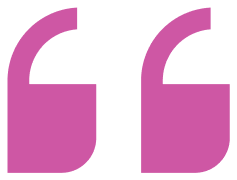For most of my life, perfectionism felt like the only acceptable standard. I wore it like armor, convinced it was the very thing that made me responsible, successful, and worthy. But beneath that polished surface was something far heavier like chronic anxiety, unrealistic expectations, and a constant fear of falling short. Perfectionism wasn't a motivator. It was a quiet form of self-punishment wrapped in the illusion of high standards.
Letting go of perfectionism was one of the hardest things I've ever done, and it didn't happen overnight. Mental health struggles complicated it even more. When you live with anxiety, perfectionism can feel like control. It convinces you that if you get everything right (every detail, every decision) you'll finally feel safe. But the truth is, perfectionism doesn't protect you. It traps you.
For years, I believed mistakes were failures and that anything less than flawless meant I wasn't enough. That constant self-monitoring became exhausting. Perfectionism set goals that were impossible to meet and then shamed me for not meeting them. It created a cycle of self-criticism that chipped away at my confidence and fed the very anxiety I was trying to outrun.
Eventually, I learned that perfectionism and mental health cannot coexist peacefully. The more I chased perfection, the further I pushed myself into burnout, discouragement, and emotional exhaustion. Perfectionism promises achievement, but what it truly delivers is self-destruction. It hangs over you like a dark cloud, convincing you that you will never measure up no matter how hard you try. That weight can lead to depression, self-doubt, and an overwhelming sense of inadequacy.
Breaking free required a mindset shift that felt uncomfortable at first: strive for progress, not perfection. At the beginning, that mantra felt like settling. I mistook "progress" for "lowering the bar." But what I discovered is that progress is where growth lives. Progress allows you to celebrate small steps, honor your effort, and recognize that you are human, not a machine.
Choosing progress meant giving myself permission to make mistakes, rest when I was overwhelmed, and value learning over flawless execution. It required courage to admit that perfection is not attainable and that chasing it only leads you further away from peace. Letting go meant embracing compassion, patience, and grace for myself; the same values I so readily give to others.
I also learned that vulnerability is strength. Sharing my struggles, advocating for mental health, and acknowledging my humanity made me a better educator, a better leader, and a better person. It taught me that showing up authentically matters far more than showing up perfectly.
Today, I understand that perfectionism is not the goal and it never should be. The goal is growth. The goal is resilience. The goal is to keep moving forward even when things aren't tidy or ideal. Progress is sustainable. Progress is healthy. Progress allows you to breathe.
If I could tell anyone struggling with perfectionism one thing, it would be this: you are allowed to be a work in progress. You are allowed to learn, adjust, stumble, and rise again. You do not need to earn your worth with flawless performance. You are already enough.
Perfectionism may have once felt like a companion, but it was never a friend. Releasing it is an act of self-preservation and embracing progress is an act of self-love.
Grace Sams,
Founder & CEO,
Sams Tutoring Online































